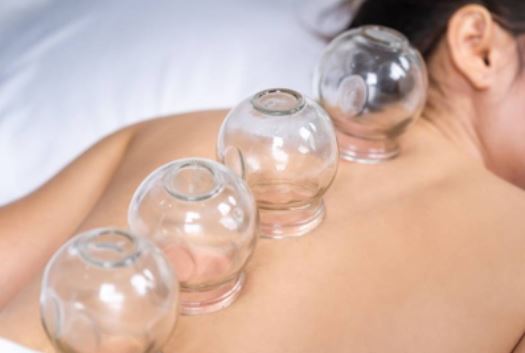Lifestyle
Everything you need to know about cupping therapy

Every day we learn about ancient medicinal practices that have been revived. Practices like acupuncture that have their roots in traditional Chinese medicine are still very popular to date.
What draws people into alternative medicine is the fact that we don’t always trust modern medicine or get the benefits they promise despite following all the instructions given by the doctor. Many people believe and have experienced the benefits of alternate medicine and in truth, many of these options actually have better results compared to common treatments we have today.
On the list of popular alternative medicine is cupping. This is a traditional technique that was practiced in places like China, Greece, Egypt and Korea. After a while, it gained more popularity and right now you can even book a session and get it done at your local spa.
Still, many of us don’t know exactly what it is, the benefits and the risks. Here is all you need to know.
What is it?
There are two basic types of cupping therapy which are dry and wet cupping. Both of them involve the use of a cup to create vacuum on your skin only that in wet cupping, incisions are made on the skin to help draw out toxins.
Traditional techniques involved the use of heat on the cups, which is still practiced today, but there are also other alternatives like using a pump to create the vacuum.
The common areas where people get it done is the back, face, neck and shoulders.
Is it painful?
If it’s done correctly, it shouldn’t be very painful. You might feel a bit of pressure during the sessions and some soreness after.
However, it all depends on your pain tolerance because maybe for you it might be on the painful side and for others it may just cause some discomfort.
The benefits?
Cupping therapy is essentially looked at as a pain treatment as well as a detox technique. It’s a common go-to pain treatment for athletes since those vigorous movements they do often cause a lot of stubborn pain.
Some people also say that cupping is an effective anti-ageing treatment. It’s meant to help improve blood circulation for tighter, firmer skin.
Does it actually work?
Whether cupping therapy works can be a bit controversial. Some studies have shown that there is no scientific evidence to prove that it works for a wide number of conditions including high blood pressure, anxiety and depression and fertility disorders. But, it might work for patients dealing with chronic pain.
More research might be needed but so far, many people who have used it as a pain reliever say it works.
The risks?
Cupping therapy isn’t exactly a risk-free technique. It might look simple to do but the wrong move can leave you with serious burns and scars.
To reduce the risks, it’s always advised that you get it done by a professional. You might have access to cupping sets being sold online but if you’re not a pro, avoid doing it yourself.
Also, before you go for a session anywhere, always check the reviews to see if there have been any serious incidences.






